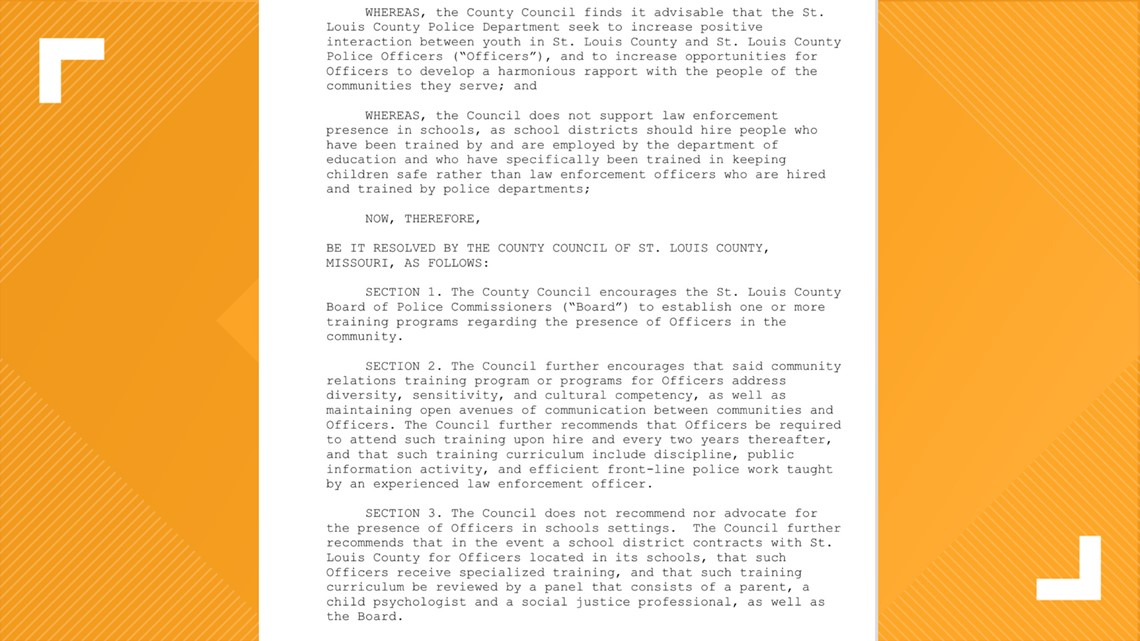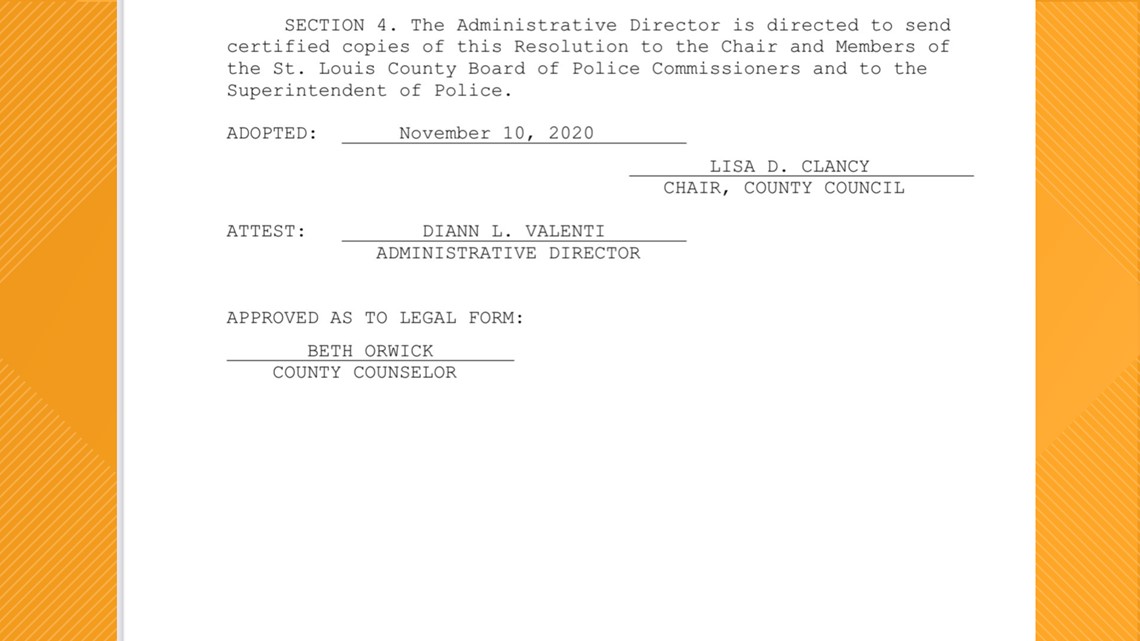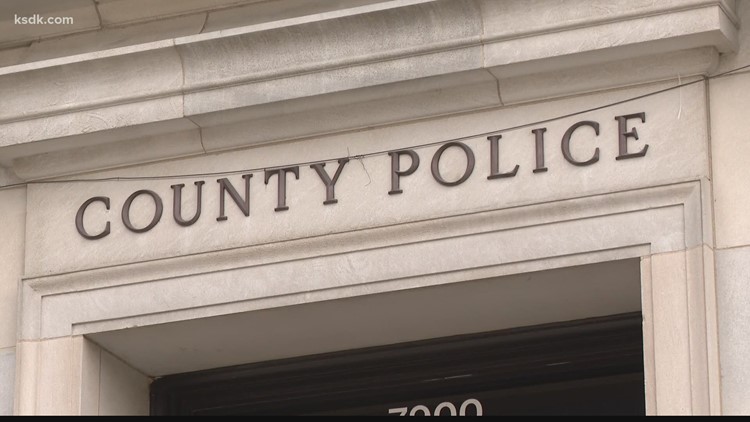ST. LOUIS COUNTY, Mo. — “The Council does not recommend nor advocate for the presence of officers in school settings.”
That line, and others, from a non-binding resolution the Democratic majority on the St. Louis County Council approved Tuesday is causing an uproar among school districts, parents and police.
And, at least one of the council members has said she regrets her decision to support it.
“I think there’s an important conversation to be had on this topic, but that this wasn’t the right way to get the conversation started,” wrote Chairwoman Lisa Clancy in a Facebook post Friday. “I do have some concerns about law enforcement presence in schools and the school-to-prison pipeline AND I also see how it’s an avenue for police officers to build positive, trusting relationships with young people and vice versa…
“If you’re an SRO reading this, I thank you for your dedication to children and I hope I haven’t alienated you too much to have a dialogue down the road.”
The resolution’s sponsors, council members Kelly Dunnaway and Rochelle Walton Gray, have not responded to requests for comment.
Some council members told 5 On Your Side they saw the resolution less than an hour before the meeting began.
But news of its passage has begun to spread throughout the school districts and communities where school resource officers work.
In a memo obtained by 5 On Your Side, Rockwood School District Director of School Safety Director Tyronne Dennis wrote: “I wanted to respond so that we are clear about where Rockwood School District stands in reference to this matter… Rockwood School District supports the School Resource Officer Program… For many years now this program has been in place and we aim to continue with the program moving forward.”
The St. Louis County Police Department has 44 officers in 13 school districts including Affton, Bayless, Parkway, Mehlville, Riverview Gardens, Hazelwood, Valley Park, Hancock Place, Lindbergh, Jennings, Rockwood, Ferguson-Florissant and Special School District.
Last year, the schools paid about $3.3 million to cover the salaries of the officers, according to the department.
One of them is Officer Brandon McCrary.
“In this current climate, we have an issue with getting more people of color, people with different backgrounds as police officers and careers and pathways into law enforcement and our job readiness program really get kids more excited to be the police and also learn what police really do,” he said.
McCrary said he has kept in touch with many of the kids from the district, including 17-year-old Karl Moore.
Moore’s mother, Syretta Moore, said she was disappointed in the council’s decision.
“You just got to roll with the punches,” she said.
But, she added, this feels like a punch.
McCrary recently wrote a letter of recommendation for her son’s college application, and has done a lot to mentor him in her absence. She is away from home because she serves in the Air Force, and is currently deployed to set up COVID-19 testing sites.
And, she said, knowing a police officer is in her son's school makes her -- and him -- feel safer.
The resolution begins by recommending the St. Louis Board of Police Commissioners establish one or more training programs “regarding the presence of officers in the community,” and that they address “diversity, sensitivity, and cultural competency as well as maintaining open avenues of communication between communities and officers.”
It also recommends that “in the event that a school district contracts with St. Louis County officers located in its schools, that such officers receive specialized training and that such training curriculum be reviewed by a panel that consists of a parent, a child psychologist and a social justice professional as well as the board.”
St. Louis County Public Information Officer Tracy Panus, also a former school resource officer, said the department is always “open to room for improvement,” but added the department already conducts specialized training and many of the recommendations contained within the resolution.
“The SROs are trained in building relationships,” she said. “Our number one priority in going into the schools is not necessarily to enforce laws.
“We are there to build those relationships and be liaisons between the kids, the parents and the educators and it's a good program.”







